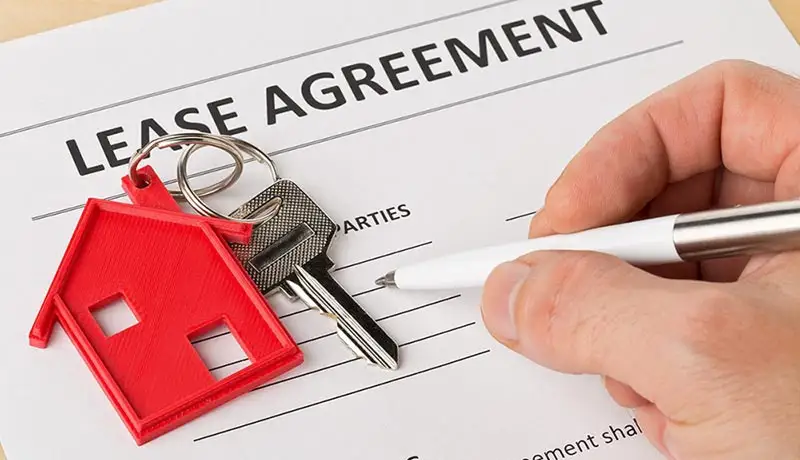Property Leasehold in Thailand
In Thailand, property leasehold provides an option for foreigners and Thai nationals to secure long-term use of land or property without full ownership, making it popular for both residential and commercial purposes. Leasehold agreements are governed by the Thai Civil and Commercial Code, allowing terms of up to 30 years, with the possibility of renewal for additional terms under specific agreements. Unlike freehold, where ownership is permanent, leasehold offers usage rights for a fixed period, providing legal security for both lessees and lessors.
1. Key Features of Leasehold Agreements in Thailand
Leasehold agreements in Thailand are designed to provide long-term, secure access to land or property while protecting the rights of both parties. Main features include:
- Duration: Leases can be granted for up to 30 years, with the potential for two additional 30-year renewals, totaling 90 years if all parties agree.
- Transferability: Leasehold rights can often be transferred or sublet, provided the agreement permits, but with some restrictions, particularly if foreign ownership is involved.
- Renewal Terms: Though a lease can theoretically be renewed, the process depends entirely on the owner’s willingness and is not guaranteed under Thai law.
- Right to Construct: Lessees may be permitted to build structures on the leased land, which they may own independently, though ownership typically reverts to the landowner when the lease expires.
These features make leasehold arrangements adaptable, particularly for foreigners who are restricted from directly owning land.
2. Use Cases for Leasehold Property
Leaseholds are versatile and commonly used for different purposes:
a) Residential Property
Foreigners often lease land for private homes or acquire condominium leaseholds if they exceed the foreign quota for freehold condominium ownership. Leaseholds offer a way for foreign residents to access residential property with legal protections.
b) Commercial Property
Companies use leaseholds to establish offices, retail spaces, or industrial facilities. Leaseholds are particularly advantageous for businesses needing flexibility, especially for those in sectors that don’t require foreign ownership of land.
c) Agricultural and Development Projects
Some developers use leasehold agreements to secure land for agricultural or tourism-related projects without taking on the obligations and costs of full ownership.
3. The Lease Registration Process
Lease agreements longer than three years must be registered at the Land Department to be enforceable for the full lease term. Registration involves several steps:
- Document Preparation: The lease agreement, identification for both parties, and proof of ownership by the lessor.
- Registration Fee: A fee of 1% of the total lease value over the lease term is typically paid upon registration, which secures the lease’s enforceability.
- Title Deed Notation: The Land Department notes the lease on the property’s title deed, providing legal recognition and protecting the lessee’s rights.
Registering the lease is critical as unregistered leases over three years may not be legally enforceable beyond this period.
4. Costs and Fees Associated with Leasehold Property
In addition to registration fees, several other costs may apply:
- Leasehold Fee: An upfront or periodic payment agreed upon with the lessor.
- Stamp Duty: Generally, 0.1% of the total lease value is payable on long-term leases.
- Maintenance and Management Fees: In condominium or gated community leases, lessees may incur maintenance or shared facility fees.
- Legal Fees: Working with a lawyer for lease drafting and registration ensures compliance with Thai law, though legal fees vary based on complexity.
Understanding these costs is crucial for budgeting, particularly when evaluating long-term lease expenses.
5. Advantages and Disadvantages of Leasehold in Thailand
Advantages
- Access to Property for Foreigners: Leaseholds allow foreigners to legally occupy and use property in Thailand despite restrictions on land ownership.
- Lower Capital Requirements: Leasehold agreements generally require less initial investment than full ownership.
- Flexibility: Leaseholds allow both individuals and companies to secure property without long-term ownership obligations, which is beneficial for foreign businesses.
Disadvantages
- No Permanent Ownership: Unlike freehold ownership, leaseholds are temporary, and rights expire with the lease term unless renewed.
- Renewal Uncertainty: Lease renewals depend on the lessor’s willingness, creating potential uncertainty for long-term tenants.
- Restrictions on Use: Certain limitations on property use may apply, especially for commercial properties, where zoning or usage restrictions may impact the lessee’s plans.
6. Legal Considerations and Protections for Lessees
Foreigners interested in leasehold property should be aware of legal protections and challenges:
- Due Diligence: Conducting due diligence on the property, verifying ownership, and confirming the lessor’s right to lease are essential for avoiding legal complications.
- Registered Lease: Registration of leases exceeding three years at the Land Department ensures enforceability.
- Professional Advice: Consulting a Thai lawyer for lease drafting and registration helps ensure compliance with local law and minimizes potential disputes.
Conclusion
Leasehold arrangements in Thailand provide a legally secure way for foreigners and Thai nationals alike to enjoy long-term property rights. By understanding the lease structure, registration requirements, and associated costs, lessees can make informed decisions and protect their investment. Engaging with legal professionals and conducting thorough due diligence are highly recommended steps for maximizing the benefits and minimizing risks associated with property leaseholds in Thailand.


